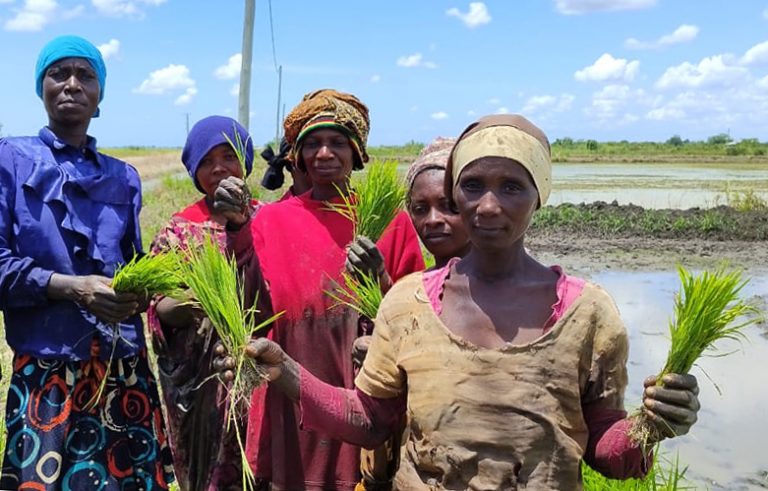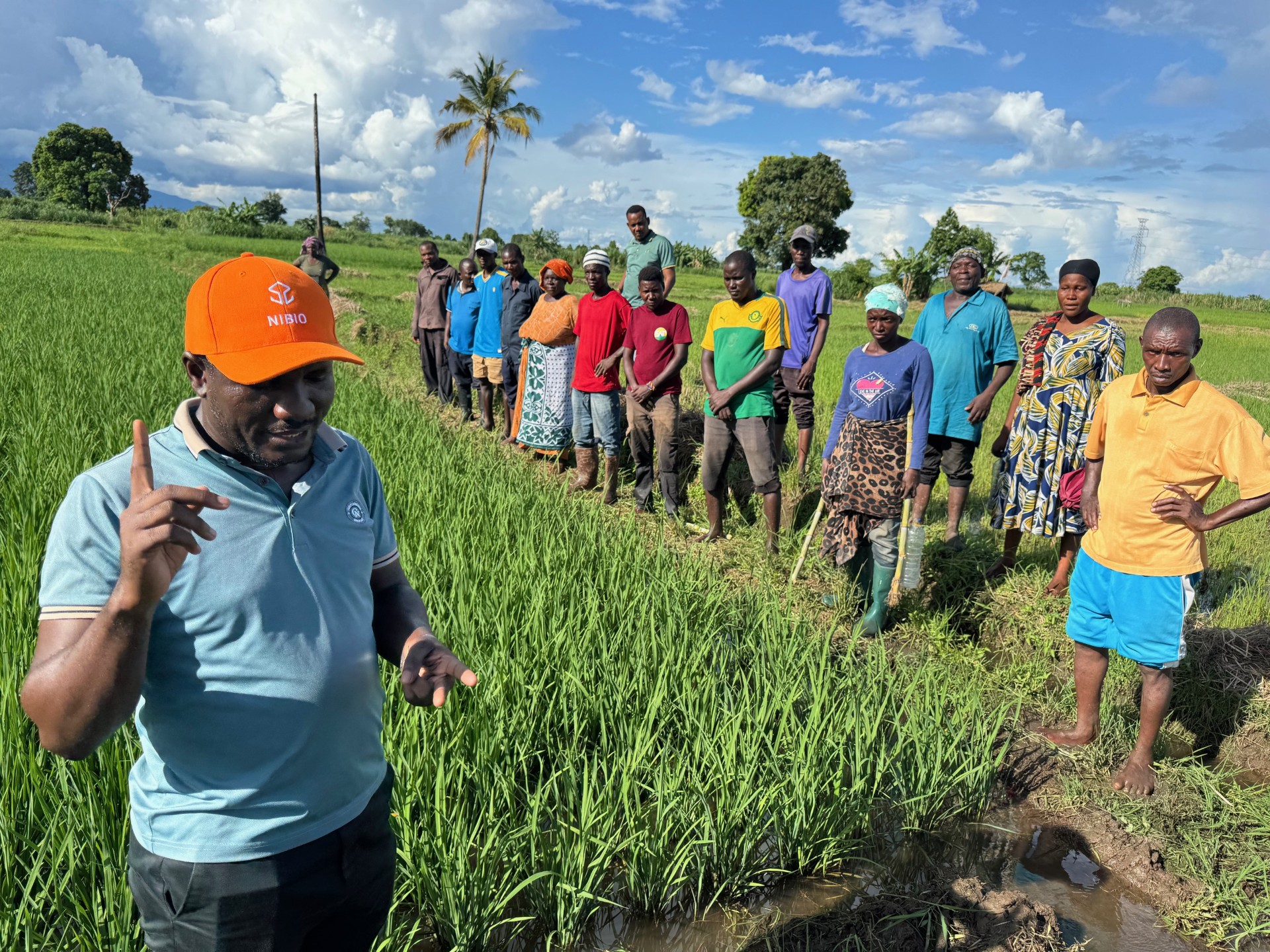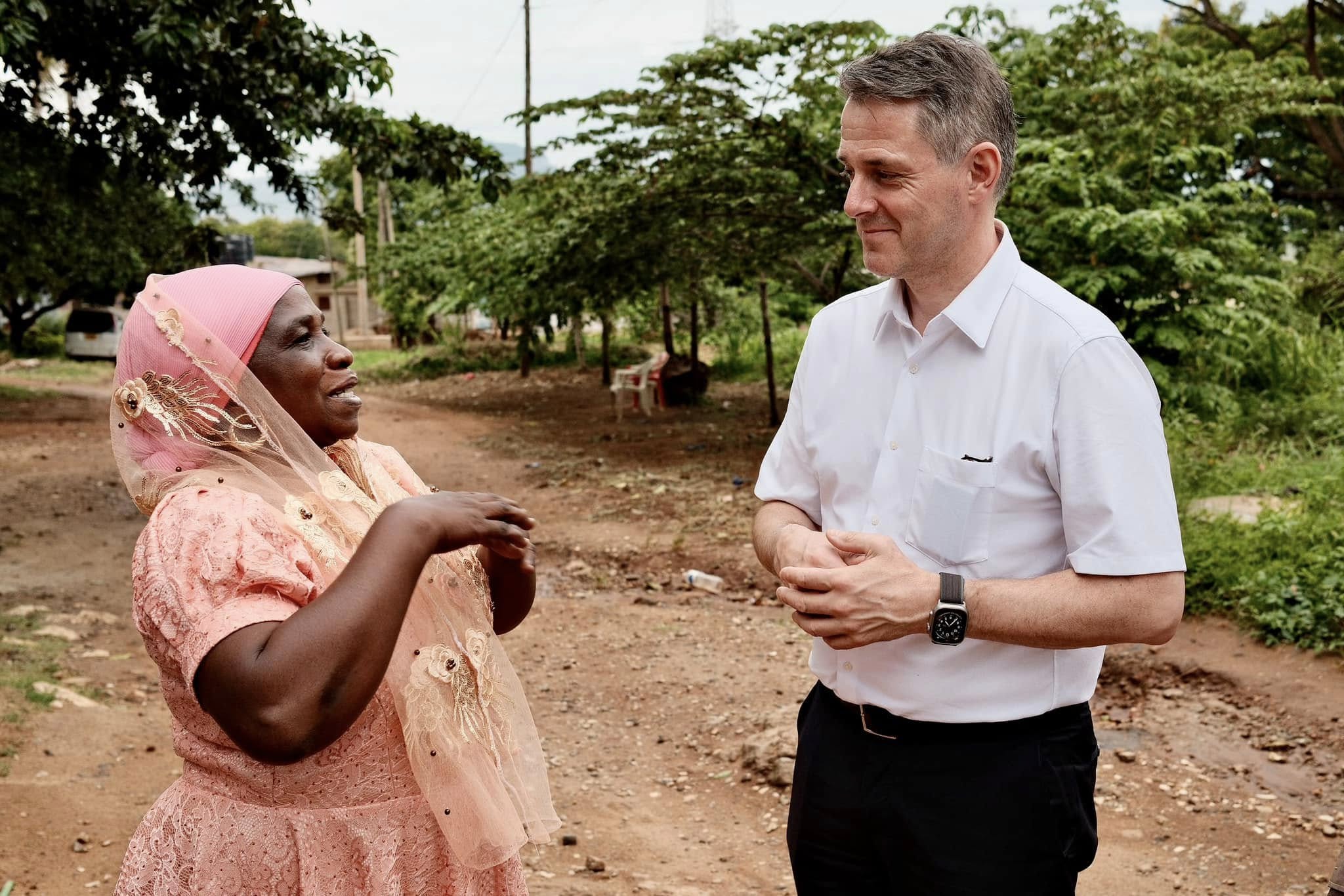Farmers adoption of SRI practices increased in Kilombero district
SRI-Tanzania project team members from NIBIO and TARI together with representative from Norad/the Ministry of Foreign Affairs, Norway (the funding agency), visited the project villages in Kilombero district during 24 to 26 March, 2025. The overall objective of the visit was to assess the progress of the project activities since the start of the project in November 2022, interact with SRI farmers, extension and district agricultural officers, field researchers and stakeholders.
SRI Tanzania Project shows promising results in improving farmer livelihoods
Two years in, the SRI Tanzania project has made a significant impact on the lives of 2,880 farmers, with a 30-40% increase in yield and an approximately 90% reduction in seed usage. The project’s simple yet effective technologies have improved the farmers’ incomes, among other things enabling them to invest in their children’s education and renovate their homes. Results from the SRI Tanzania Project were presented at the annual meeting held in Morogoro, Tanzania on January 13th 2025.
QDS and SRI training sessions
In one of the training sessions in 2024, 44 farmers were trained and provided with a certificate to produce seeds. Each farmer was given five kg of Basic seed from TARI for producing on 1.5 acre of Quality Declared Seeds (QDS ) plots. A total of 220 kg of seeds were provided to the trainees. The QDS trainees were also trained on business aspects of seed production from social economist Dr Julian Mwakasendo. Issues concerning environment safety and handling of agricultural chemicals in rice production was addressed by Mr Adolf Katuniz, one of SRI Tanzania’s team members. Here is a group photo of the QDS seed producers with the SRI team and the trainer from Tanzania official seed certificaton institute (TOSCI) and representative from RCT.
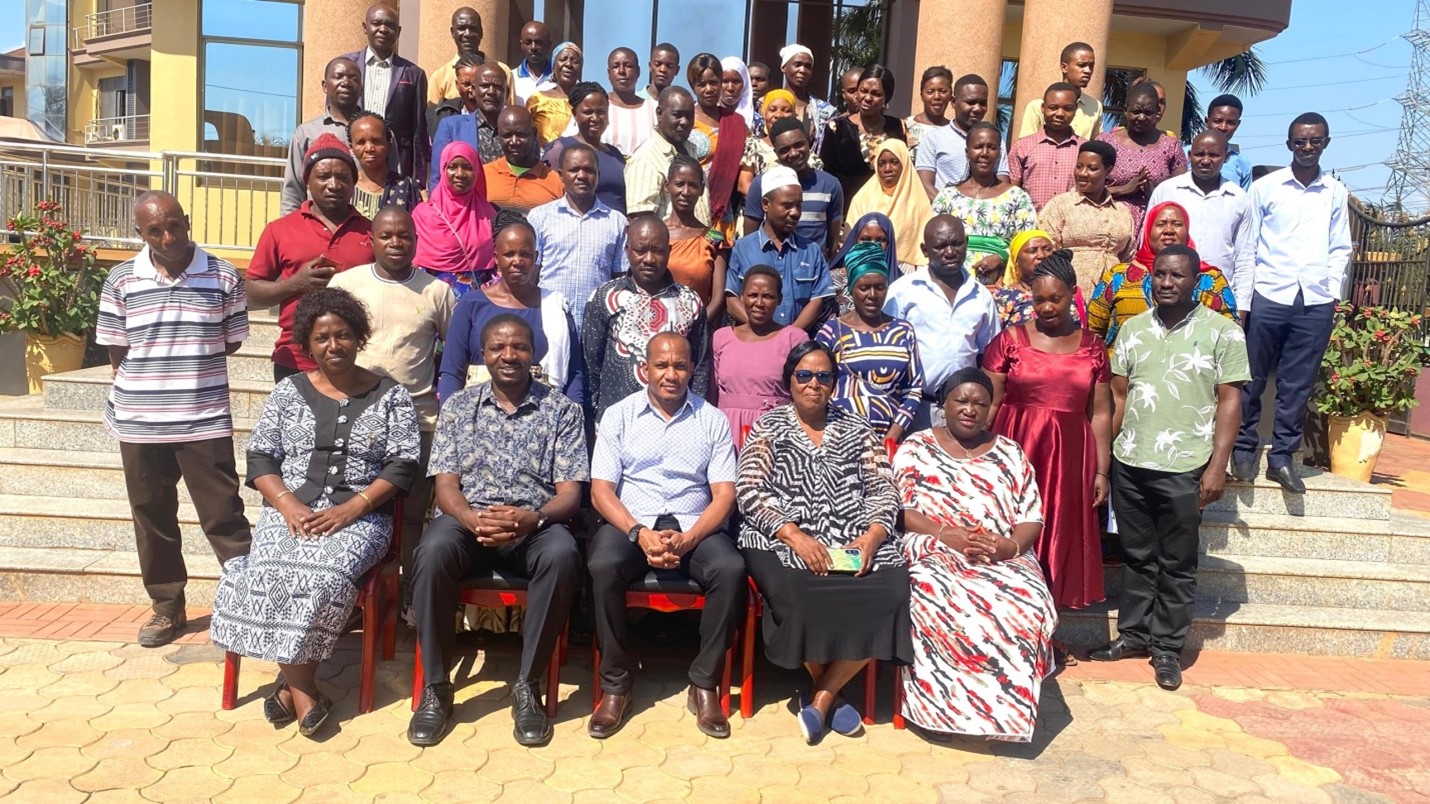
SRI-Tanzania Project review meeting
The project review meeting was organized at Mbeya, Tanzania Agriculture Research Institution (TARI) campus from 23rd to 27th January 2024. The main objective was to review the work progress made during the first year of the project, get feedback from the farmers, TARI scientists, stakeholders from local government, Department of Agriculture, Extension, and Irrigation officers.
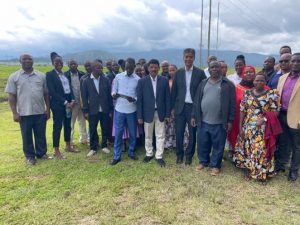
Labour Service Providers’ Training
TARI Ifakara in collaboration with Rikolto conducted Labour Service Providers’ Training on SRP (Sustainable Rice Platform standard) Framework and Practical Demonstrations at Madibira scheme, Mbarali district, from 02 – 11th January 2024.
The purpose of the training which was led by Dr. Kulwa Furahisha (PhD) was to equip Labour Service Providers with knowledge and skills needed in transition to sustainable rice production.
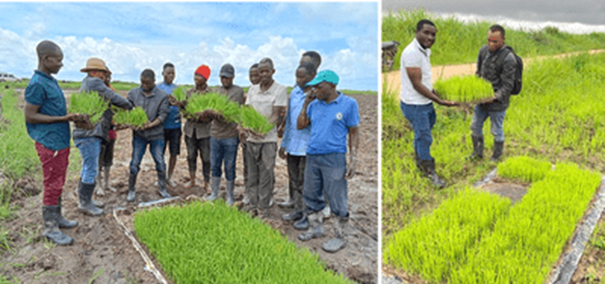
Significant achievements by SRI Tanzania project
The first year of the SRI-T project has made good progress during 2023, with almost 975 farmers, trained on various principles of SRI method both in theory and in practice. In addition, 16 researchers/ field personnel, 207 lead farmers, 31 local Government/Agricultural Extension Department officers were trained. A total of 6 training modules on different principles of SRI (covering crop, soil, water, pest, and disease and weed management) were prepared/evaluated and the final version was published in local language.
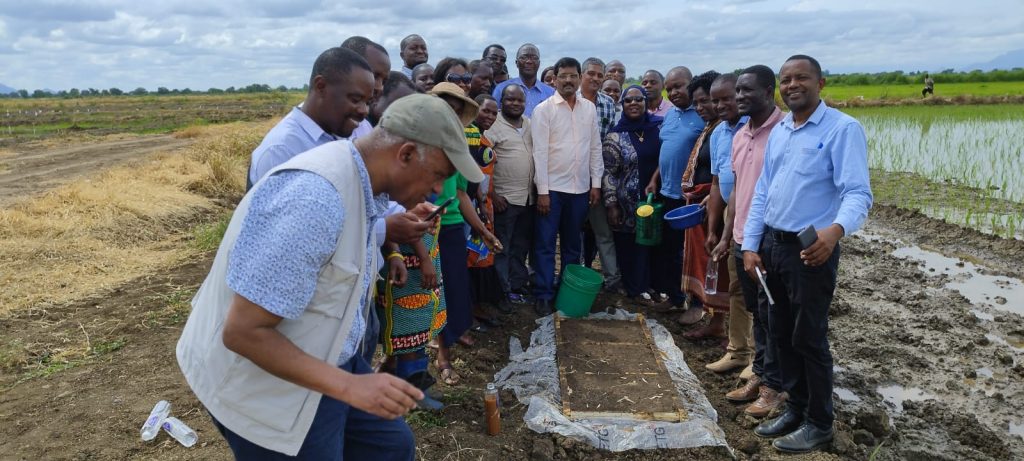
Tanzania scientists visit India in July 2023
Officials from Tanzania Agriculture Research Institute (TARI) visited India from July 15 to 20, 2023, as part of the project on Institutional Capacity Building for Climate-Resilient Rice Production, supported by the Ministry of Foreign Affairs and the National Institute of Bioeconomy in Norway.
The purpose of the visit was to learn and understand the System of Rice Intensification (SRI) method of paddy cultivation for adoption in Tanzania. They also aimed to comprehend the M.S. Swaminathan Research Foundation (MSSRF) model of Village Resource Centers (VRC), Village Knowledge Centers (VKC), and the Plant Clinic programme. Additionally, they sought to gain insights into various aspects of rice cultivation practices, rice varieties, the seed supply system, price issues, and how climate-smart rice seeds are made accessible to smallholders by both the government and private sectors.

Kick-off meeting held in Morogoro in March 2023
More than 50 participants were present at the kick-off meeting in Morogoro on March 14, 2023, including representatives from NIBIO, TARI, Rice Council of Tanzania, Norges Vel, Helvetas, and two rice experts from India (MSSRF and TNAU).
At the meeting, project coordinator Dr. Sekhar Udaya Nagothu emphasized the importance of the project and its potential to improve sustainable rice productivity and farmer livelihoods in Tanzania. He outlined the project goals and expected impacts and how this could be achieved through institutional capacity building on SRI over the next three years. This will be supported by on-farm trainings and farmer demonstrations across the different irrigation schemes where the project will be implemented.

NIBIO and TARI to collaborate on climate-smart rice production system in Tanzania
In Tanzania, the agricultural sector is dominated by smallholder farmers who are vulnerable to climate extremes such as droughts and erratic rainfall, in addition to other challenges such as land degradation, poor soil health management and limited access to new farming technology.
On November 28 2022, NIBIO signed a collaborative agreement with the Tanzania Agricultural Research Institute (TARI) at the Royal Norwegian Embassy in Dar es Salaam. The aim of the Norad funded project is institutional capacity building on climate-smart and resource efficient rice production systems to benefit Tanzanian smallholders.
